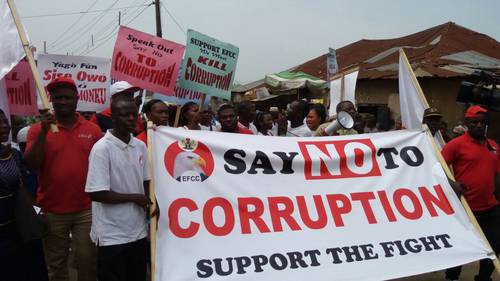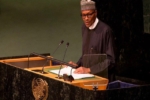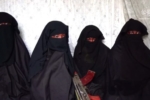To the best of my knowledge, I was the first Nigerian to call for a whistleblowing policy as part of the solution for Nigeria’s corruption problem.
For almost a decade, since that 2008 paper, I have argued that the Nigerian brand of corruption is a rational act, and that there are three elements needed for its eradication, of which the enactment of a whistleblowing policy was a necessary first step. The other legs of the anticorruption tripod are enhancing the successful prosecution of corruption cases and the strengthening of penalties for corrupt individuals.
I followed up those arguments in a second article in 2012 that reviewed new cases to support my arguments for the rational basis of corruption, and a final paper in 2016 that used actual data from a nationwide survey of Nigerians to provide a fact basis to my assertions.
My purpose in all these studies was not to rationalize corruption but to demonstrate that corruption necessarily thrives when a political and civil service system that encourages graft is coupled with an ineffectual judicial process and a weak enforcement regime. Those studies were what led me to the conclusion, since 2008, that an effective policy approach to tackle corruption must have a corresponding rational basis.
I commend the Nigerian government for adopting the whistleblowing policy. The recent successes that have been recorded should be celebrated. However, as I have argued since 2008, whistleblowing is merely one leg of the anticorruption tripod. Sadly, the other legs of the tripod have not been aggressively pursued by the Buhari regime.
For success the Buhari government must work on 1) tightening the odds of successful prosecution of corruption cases and 2) increasing the penalties associated with corruption.
To tighten the odds of successful prosecution, two things are needed. Firstly, lawyers need to be provided with incentives to make the best cases possible. The EFCC should open up its case load to bids from a wider cache of lawyers, and if necessary hire lawyers from other agencies (FBI, Scotland Yard, etc.) outside Nigeria with a history of successful prosecution of corruption cases, to help guide the process of developing air tight cases. The contracts for these lawyers should include incentives for successful prosecution and binding punitive measures for any actions that they take to sabotage the EFCC’s case. The incentives should include the guarantee of percentages of the corruption proceeds to the lawyers upon successful prosecution of the cases. Secondly the Buhari government must urgently cut off the legal loopholes that corrupt persons use to tie up their cases in the courts. Special anti-corruption courts will be the answer to this problem. Prof. Itse Sagay – Chairman of the Presidential Committee on Anti-corruption has indicated that some work is being done on this leg of the tripod. The policy initiatives that have come out of that effort need to be aggressively rolled out.
The final leg of the tripod is the introduction of penalties that impose a price for people convicted of corrupt practices that is immensely high. Convicted officials must be stripped not just of the funds they embezzle, but of their charters and / or professional licenses. They should be barred for life from participation in politics and from being appointed to any positions of trust in the public or private sector. They should also be barred from participating in the formation, organization or management of any political entities. They should be stripped of any national honors that they currently hold, and must never be considered for any. The forfeiture requirements for successful conviction must be total. These forfeiture requirements and punitive measures must also apply to plea deals, for agreements reached outside the courts.
Unless the Buhari government aggressively integrates the other two legs of the tripod into the anticorruption effort, the process will fall and falter. A one-legged table cannot stand. All three parts are essential to the success of a comprehensive anti-corruption war. Worse still, a whistleblowing program by itself can spawn its own web of corruption. One that will ultimately worsen – and not reduce the problem of corruption in Nigeria.
Sahara Reporters
This page has been viewed 516 times
Tags : Editors choice






























